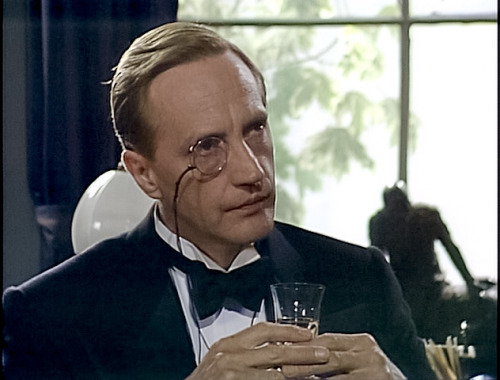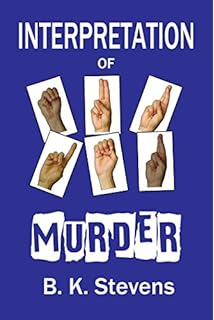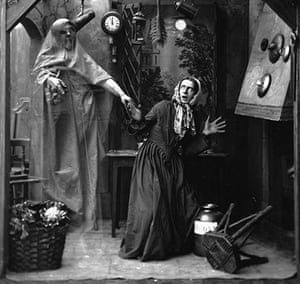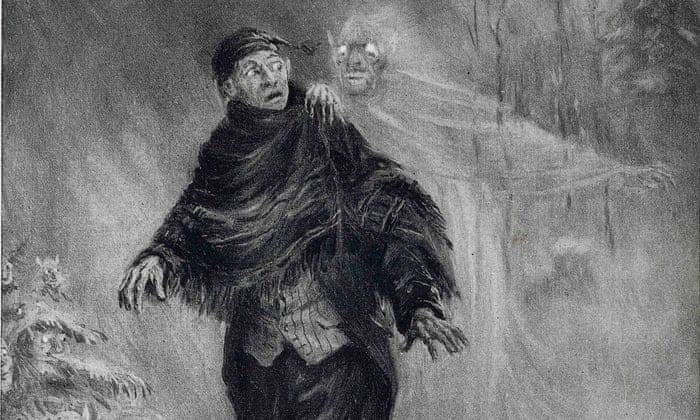
There could be all sorts of reasons that a protagonist might be right for short stories but wrong for novels. I wrote a series of stories (for Alfred Hitchcock's Mystery Magazine) about dim-witted Lieutenant Walt Johnson and overly modest Sergeant Gordon Bolt. Everyone--including Bolt--sees Walt as a genius who cracks case after difficult case. In fact, Walt consistently misunderstands all the evidence, and it's Bolt who solves the cases by reading deep meanings into Walt's clueless remarks. A number of readers urged me to write a novel about this detective team. (And yes, you're right--most of these readers are members of my immediate family. They still count as readers.)
Despite my fondness for Walt and Bolt, though, I never even considered writing a novel about them. I think they're two of the most likable, amusing characters I've ever created. But Walt is too dense, too anxious, and too cowardly to sustain a novel. How long can readers be expected to put up with a detective who's always confused but never scrapes up the courage to admit it, no matter how guilty he feels about taking credit for Bolt's deductions? And while I find Bolt's self-effacing admiration for Walt sweet and endearing, I think readers would get fed up with his blindness before reaching the end of Chapter Two.
I think these two are amusing short-story characters precisely because they're locked into patterns of foolish behavior. As Henri Bergson says in Laughter, repetition is often a fundamental element in comedy. But this sort of comedy would, I think, get frustrating in a novel. Readers expect the protagonists in novels to learn, to change, to grow. Walt and Bolt can't learn, change, or grow without betraying the premise for the series. So I confined them to twelve short stories, spread out between 1988 and 2014. In the story that completed the dozen, I brought the series to an end, doing my best to orchestrate a finale that would leave both characters and readers happy--a promotion to an administrative job for Walt, so he can stop pretending he's capable of detecting anything, and a long-awaited wedding and an adventure-filled retirement for Bolt. I truly love these characters. But I'd never trust them with a novel.
Other short-story protagonists, though, do have what it takes to be protagonists in novels, too. Lord Peter Wimsey is one example--in fact, most readers would probably agree that, delightful as most of the stories about him are, the novels are even better. Sherlock Holmes is another example--four novels, fifty-six short stories, and I think it's fair to say he shines in both genres. I considered one of my own short-story protagonists so promising that I decided to build a novel around her. Before I could do that, though, I had to make some major changes in her character.
American Sign Language interpreter Jane Ciardi first appeared in a December, 2010 Alfred Hitchcock's Mystery Magazine story, now republished as a Kindle story called "Silent Witness." Positive responses to the story--including a Derringer from the Short Mystery Fiction Society--encouraged me to think I might be able to do more with the character. It also helped that one of my daughters is an ASL interpreter who can scrutinize drafts and provide insights into deaf culture and the ethical dilemmas interpreters face. And I like Jane. She's smart, she's observant, she has acute insights into human nature, and she has a strong sense of right and wrong. In "Silent Witness," when she interprets at the trial of a deaf man accused of murdering his employer, she wants the truth to come out. She definitely doesn't want to see an innocent man go to prison.
I don't think it's enough to make her a fully satisfying protagonist in a novel--at least, not in a traditional mystery novel. In what's often called a literary novel, the Jane of "Silent Witness" might do fine--another protagonist paralyzed by doubt, agonizing endlessly about right and wrong but never taking decisive action. The protagonists of traditional mysteries should be made of sterner stuff. So in Interpretation of Murder, I made Jane regret and learn from the mistakes she'd made in "Silent Witness." We find out she did her best to correct them, even though it hurt her professionally. And when she's drawn into another murder case, she works actively to uncover the truth, she comes up with inventive ways of gathering evidence, and she speaks out about what she's discovered even when situations get dangerous. I can't be objective about Jane--others will have to decide if these changes were enough to make her an effective protagonist for Interpretation of Murder. But I'm pretty sure mystery readers would find the Jane of "Silent Witness" a disappointing companion if they had to read an entire novel about her.
Have you encountered mystery characters who are effective protagonists in short stories but not in novels--or, perhaps, in novels but not in short stories? If you're a writer, have you decided some of your protagonists work well in one genre but not in the other? If you've used the same protagonist in both stories and novels, have you had to make adjustments? I'd love to hear your comments.































